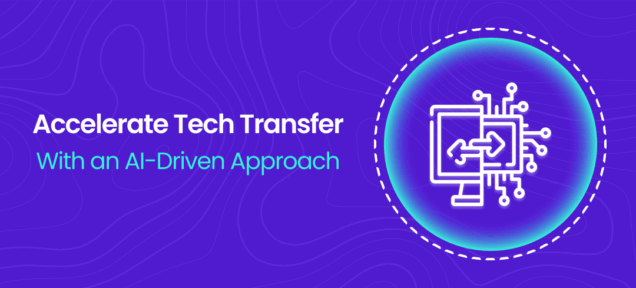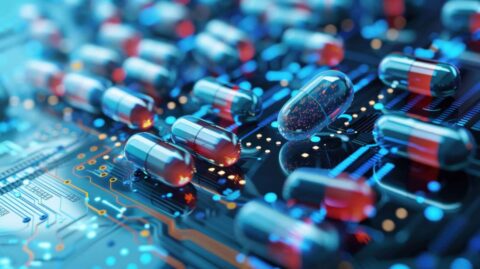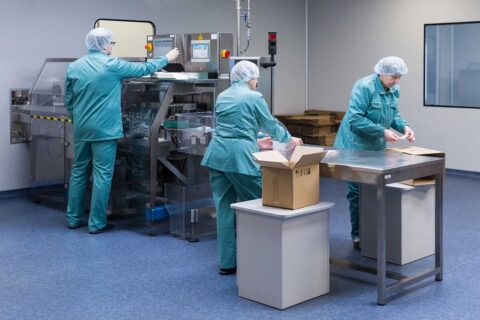Summary : The pharmaceutical industry’s growing reliance on CDMOs has made technology transfer a mission-critical process. Traditional, manual methods create bottlenecks and errors that delay product launches. Modern digital platforms, such as Mareana’s Manufacturing Intelligence Platform, promote CDMO-Sponsor collaboration by enabling a unified data environment, AI-driven batch reviews, and digital twins of manufacturing processes.
The pharmaceutical industry is increasingly reliant on Contract Development and Manufacturing Organizations (CDMOs) to get life-saving therapies to market. This trend makes the technology transfer process between a brand sponsor and their CDMO more critical than ever, as it requires a high degree of trust, transparency, and seamless collaboration between two separate organizations. Despite this, tech transfer is often treated as a one-way, linear handoff, rather than an ongoing partnership. The conventional approach relies on a static “technology transfer package” that is compiled and handed over, with formal meetings serving as a limited opportunity for clarification. The process of compiling this package is frequently a manual, labor-intensive effort, prone to human error and data fragmentation. This outdated method creates significant bottlenecks, especially during critical stages like batch record review and release, which can lead to costly delays and frustrate stakeholders across the board.
How Does a Digital Platform Transform Collaboration and Compliance?
The traditional approach to tech transfer is a major source of operational inefficiency. A key example is the batch record review process between the sponsor and the CDMO. When a CDMO makes an error in the review, the sponsor has to reach out to resolve the issue. This leads to deviations and delays before the material can be used. For instance, if the CDMO QA releases a batch and sends the documentation to the sponsor, but the sponsor QA later finds that the material was not stored as per the standards based on the provided trends, a deviation is raised, and a lengthy back-and-forth follows. The industry needs a solution that fosters a more transparent and collaborative environment. This is where a unified digital platform proves to be a game-changer. By providing a single, integrated data environment, it allows both the sponsor and the CDMO to work from a shared source of truth. This level of transparency builds trust and streamlines workflows, including regulatory submissions and batch release. A modern platform can leverage AI to automate tedious, time-consuming tasks. The Mareana Manufacturing Intelligence Platform, for instance, includes a Batch Release Copilot module that transforms the review process into an “exception-only workflow”. By automatically reviewing data and flagging only the deviations that require human attention, it drastically accelerates this critical step. This ensures products can reach patients and the market faster, directly impacting revenue and market access for both parties.
How Can AI and Data Create a “Digital Twin” for Seamless Knowledge Transfer?
Beyond just streamlining workflows, the right technology can help solve the fundamental problem of transferring “know-how” and creating a complete, auditable record of the manufacturing process. This is particularly challenging when dealing with legacy products with a history of paper-based records. The manual process of converting these records is a major barrier to a successful transfer. Instead of relying on static documents, the future of tech transfer is about creating a dynamic “digital twin” of the process. The Mareana platform, for example, utilizes a suite of AI-driven tools for this purpose. Its Batch Genealogy module provides an AI-powered, end-to-end visual map of all production data from raw material to finished product. This gives the CDMO or new manufacturing site an immediate and auditable digital twin of the process, ensuring a deep understanding of the product’s history and behavior. The platform also includes a Paper Record Digitization solution that transforms unstructured paper data into a reliable, queryable, and traceable digital format, ensuring all historical context is accessible. For a deeper dive into the role of modern platforms in accelerating tech transfer and other advanced strategies, our detailed whitepaper,“ De-Risk Tech Transfer and Accelerate Time to Market,” provides a comprehensive analysis. This robust digital foundation also positions companies to leverage other emerging trends. The rise of AI and machine learning in life sciences allows manufacturers to analyze vast datasets to predict process performance and uncover unknown critical process parameters — or combinations of parameters that can affect product quality. This insight helps de-risk technology transfer and supports “first-time-right” outcomes. The ability to operate with greater agility and resilience is crucial for a future with increasingly complex and personalized therapies.
Conclusion
The challenges of traditional tech transfer are clear, but so is the path forward. By embracing a modern, data-driven approach, life sciences organizations can overcome fragmentation, mitigate risk, and accelerate their product pipelines. Manufacturing Intelligence platforms like Mareana provide the tools and capabilities necessary to make this transformation a reality, empowering teams with a single source of truth and enabling them to focus on what matters most: bringing life-saving therapies to patients, faster and more reliably. Learn how the Mareana Manufacturing Intelligence Platform can help your organization achieve “first-time-right” manufacturing and accelerate time to market. Contact us now.
Frequently Asked Questions (FAQs)
-
What is technology transfer in pharmaceutical manufacturing?
Technology transfer in pharma refers to the process of transferring product and process knowledge between a brand sponsor and a Contract Development and Manufacturing Organization (CDMO). It ensures that life-saving therapies are manufactured safely, consistently, and in compliance with regulatory standards. -
Why is technology transfer between sponsors and CDMOs so challenging?
The process is often manual and document-heavy, relying on static technology transfer packages. This can lead to data fragmentation, miscommunication, and delays during critical stages like batch record review and product release. -
How does a digital platform improve collaboration between sponsors and CDMOs?
A digital platform creates a unified data environment, allowing both parties to access a shared source of truth. This transparency enhances trust, eliminates redundant communication, and accelerates workflows such as batch review, regulatory submission, and product release. -
What is the role of AI in modern tech transfer and manufacturing?
AI automates repetitive tasks, detects anomalies, and enables “exception-only workflows.” Tools like Mareana’s Batch Release Copilot use AI to automatically review data, flag deviations, and ensure faster, more accurate batch releases. -
What is a “digital twin” in pharmaceutical manufacturing?
A digital twin is a virtual, data-driven representation of a manufacturing process. It enables seamless knowledge transfer by capturing all production data, process history, and quality parameters in a dynamic, auditable format, resulting in reduced risk during technology transfer. -
How can AI-powered platforms digitize legacy paper records?
Modern solutions like Mareana’s Paper Record Digitization convert unstructured paper data into traceable digital records. This ensures that historical manufacturing insights remain accessible and usable during future transfers or audits. -
What are the key benefits of using a Manufacturing Intelligence Platform?
Manufacturing Intelligence Platforms, such as Mareana, offer benefits including improved data integrity, faster batch releases, risk mitigation, and enhanced regulatory compliance. They also provide a foundation for predictive analytics and continuous process optimization. -
How does AI support “first-time-right” outcomes in tech transfer?
AI and machine learning analyze vast datasets to identify critical process parameters and predict potential deviations before they occur. This proactive approach ensures the manufacturing process is optimized from the very first run, minimizing costly rework.




 Learn more
Learn more



